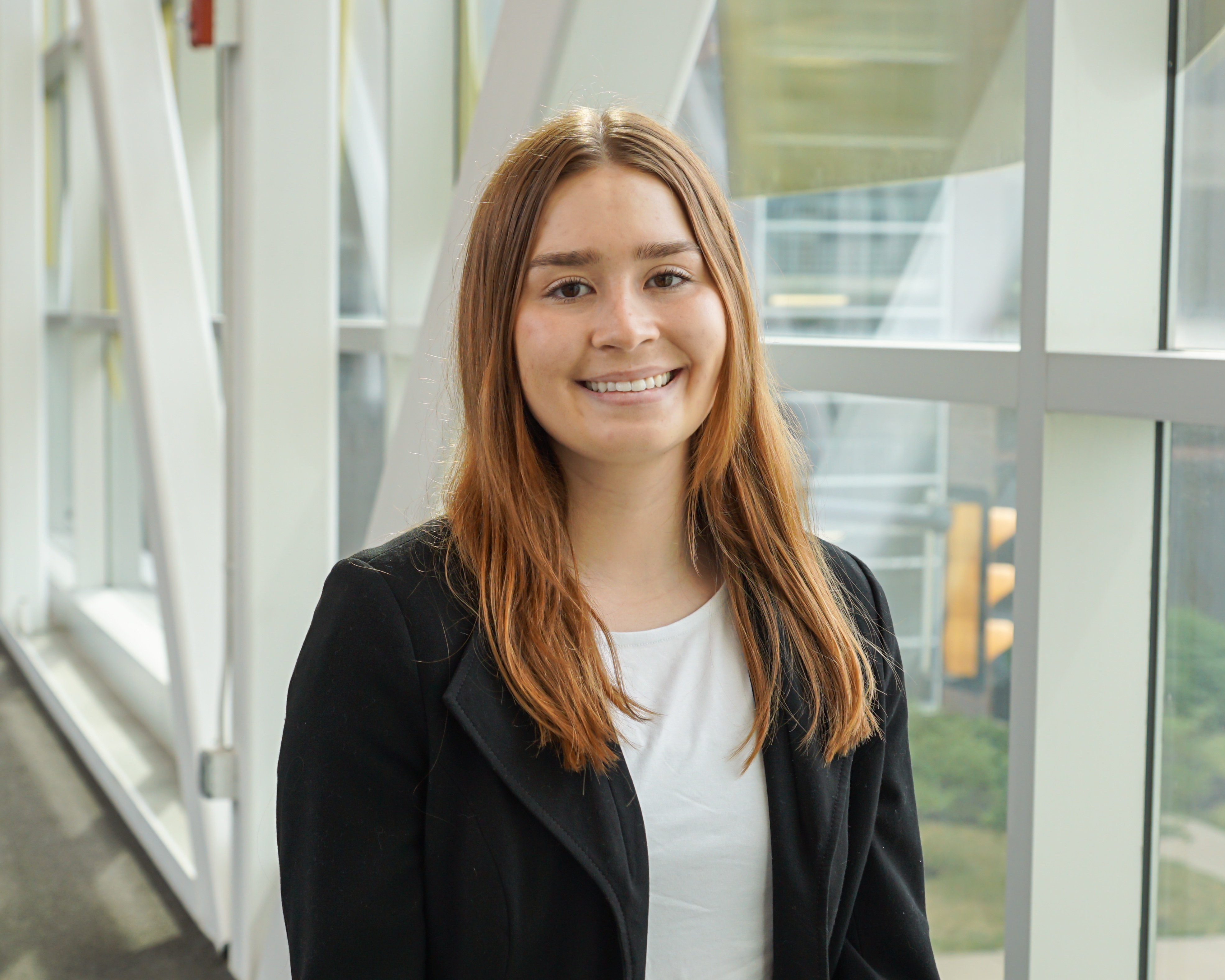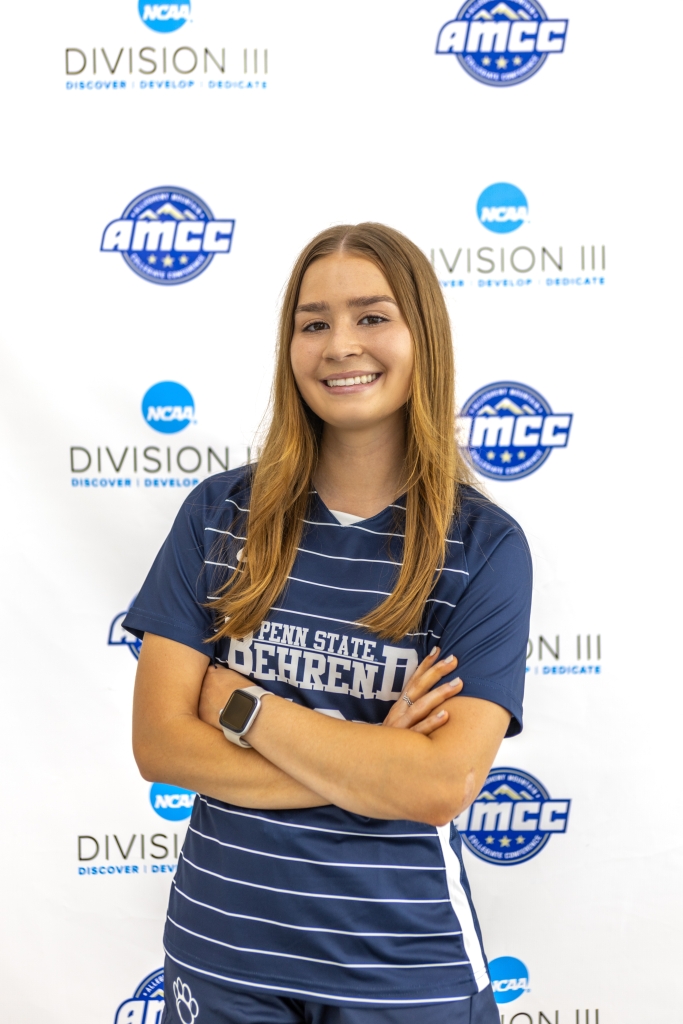Penn State Behrend’s Class of 2025 is ready to make its mark on the world. We’re proud of our students and all that they have learned and accomplished here at Behrend. Over the next several weeks, we will introduce you to a few of our remarkable seniors who have conducted valuable research, pioneered innovation, overcome challenges, and engaged in college life in a big way.
Today, we’d like you to meet Anna Smith.
Majors: Interdisciplinary Business with Engineering (IBE) Studies and Project and Supply Chain Management (PSCM)
Hometown: Cleveland, Ohio
Scholarships: Lawrence and Elizabeth Held Scholarship and Penn State Discover Award
Why she chose Behrend: Because of the unique opportunity it provided for me to excel both academically and athletically. I really liked the idea of being able to thrive both in the classroom and on the field all while working toward a Penn State degree. I’ve always been a part of a team, so I knew going into college that I wanted to continue playing soccer, and Behrend seemed to be the best fit for me.
Why she chose her majors: This decision was driven by my interest in global logistics and operations. Some of my strengths include strategic and logical thinking, which is why supply chain management has always been of interest to me. Additionally, IBE is a unique way of combining both business and engineering practices that only further develops my supply chain knowledge.
Proudest accomplishment at Behrend: Being selected for the AMCC All-Sportsmanship team in our conference, despite losing my entire season to injury (fractured femur) and never once stepping on the field. This recognition meant so much to me because it highlighted the impact that I had off the field. Throughout my recovery, I remained dedicated to supporting my teammates, embodying the spirit of sportsmanship by encouraging and motivating them from the sidelines. This experience taught me that true leadership and sportsmanship extend beyond physical performance. It’s all about showing up for your team, maintaining a positive attitude, and contributing to the collective success in any way possible. Winning this award reaffirmed my belief in the importance of character and resilience, and it remains a testament to my commitment and value that I was able to bring to the team.
Challenges: Overcoming the challenge of losing my entire senior season of college soccer due to injury has been a transformative experience for me. It has taught me all about resilience and determination as I navigated the physical and emotional hurdles of recovery. This period of adversity pushed me to develop a positive mindset and focus on personal growth. I learned the importance of patience and perseverance, which not only helped me regain my physical strength but also made me mentally stronger.
A team player: Throughout my recovery, I always wanted to be there for my teammates, supporting them from the sidelines and showing up for them no matter what. This experience deepened my understanding of the value of loyalty and commitment, reinforcing the significance of being present for others in their times of need. Through this journey, I was able to gain a deeper understanding of my own capabilities and understand the value of supporting others facing similar challenges.
Awards and accolades: Dean’s list most semesters, Academic All-Conference all four years, Chi Alpha Sigma National Student-Athlete Honor Society, and AMCC All-Sportsmanship team.
After her graduation in May, Anna will join the Supply Chain Rotational Program at Goodyear Tire & Rubber Company’s global headquarters in Akron, Ohio.



